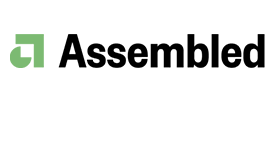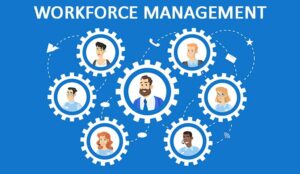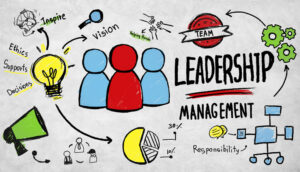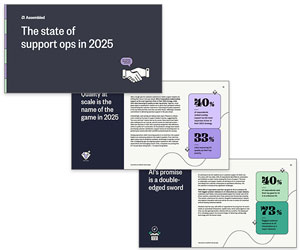When you started in your current WFM role, they said you’d need to build out a team eventually. Well, that day has finally come.
You’ve got the approval and you’ve got the budget — but where do you go from here? If it feels overwhelming, just know you’re not alone. Here are some key questions to consider at the start of your team-building journey.
1. When Should I Start Building a Team?
The simple answer here is when you’ve hit your limits. Maybe your plate is just too full, and you don’t have enough hours in the day. Or perhaps the stakeholders you’re accountable to are asking you to do things you don’t have enough experience to tackle.
It’s okay to admit you’re human and have limits. What’s not okay is burning yourself or thinking you can do the job of several people.
All too often, WFM professionals build their careers by being the ones with all the answers, the ones that are always available, and the ones that are willing to go above and beyond. As a result, they tend to push themselves well past reasonable expectations.
The negative impact of this work ethic is that workforce managers will short-staff themselves. Rather than lead their organizations to believe that the work of two full-time employees can be completed by one, WFM professionals should admit their limits, advocate for the resources they need to continue doing quality work, and avoid becoming a single point of failure.
So, if you’re wondering if you should start building a team around you, the fact that you’re asking the question probably means the answer is yes.
2. What Role Should I Hire First?
If you’re hiring because your plate is too full, then focus on a role that will free you up to do the things you’re great at. If you’re hiring because your key stakeholders need more, find the person that can meet their demands.
Regardless of the reason, you should be looking to hire a role that will allow you to focus on more strategic and less tactical items. Focusing on strategic items will enable you to continually expand your team and increase your impact on the organization.
3. What Pitfalls Should I Look For?
Don’t overvalue specific WFM platform experience. It’s all too easy to think that simply because someone has experience with your telephony, CRM, or WFM platforms that they’ll be an easy plug-and-play employee.
The reality is that you will still have to teach them your culture, your processes, and your environment. You might be able to cut down on a day of training because of their experience, but you might be giving up a lot more with a poor culture fit (more on that below).
Tools are teachable. Character, less so.
4. What Questions Should I Ask in the Interview?
There are dozens, if not hundreds, of articles on questions to ask in interviews. Here are a couple of good ones for WFM professionals. It isn’t comprehensive, but it should give you a good starting point.
For RTA:
Tell me about a time you advocated for an agent dealing with a customer. What was the situation and why did you feel like you needed to speak up for them?
The value:
If the answer comes easily and quickly, this likely indicates they’ll avoid the pitfall of RTA coming across as “big brother” to the agents.
It will also give you a chance to speak about how you’d like your RTA team to focus on helping the agents. Sometimes that means encouraging the agents to their next best work state, and other times that means advocating for an exception to be made for them.
For Scheduling:
What’s more important — scheduling for business needs or agent needs?
The value:
The reality is that the question is a false dichotomy, it doesn’t have to be one or the other. Hopefully, the person you’re interviewing will catch that and say, “both.”
But if they pick one over the other, you’ll at least have a better idea about which way they’re going to lean in their scheduling practices. This will help you identify ways you’ll need to coach them toward the other priority and help them reach an optimum balance between business and agent needs.
For Forecasting:
Would you rather your forecast be accurate or actionable?
The value:
Again, it’s a false dichotomy, and hopefully they call that out. But if they pick one over the other, this gives you a chance to explain the value of the other choice and how you are going to need them to do both.
For WFM Leadership:
Tell me about a time you put the needs of your team above your own.
The value:
You want to be careful that you don’t hire someone with a martyr complex or someone that is going to burn themselves out by not taking care of their needs.
However, it’s critical that you find a person that sees their primary value to the team as someone who leads by serving. Knowledge of WFM best practices are helpful, but it’s hard to put a price on someone who brings the best out of the WFM team.
5. What Skills Should I Look For?
Years of experience, knowledge of platforms, industry familiarity, etc. are helpful, but they’re becoming less and less critical.
Instead, focus on skills such as curiosity, kindness, empathy, inclusivity, and growth mindsets. These soft skills are much harder to find and often outweigh the value of a few platform shortcuts.
6. What Ratios Should I Use When Building Out Roles?
It isn’t about the ratio, it’s about the work. You likely need to apply your own WFM thinking to your team. How much work will you have to complete? How long will it take? What skills are necessary to complete the work? What distractions might get in the way of the work?
The reality is that depending upon those answers your ratio could be as small as 1:10 or as high as 1:250 — it just depends on your WFM workload.
Bonus Tips
Use Your External Network:
Connect with your WFM network and let them know you will have an open role. They don’t have to be looking for themselves to be helpful and pass your open opportunities on to others in their network.
Use Your Internal Network:
This may be your first time building out a team, but other people in your organization likely have experience.
Talk to your HR business partner, your friends over in finance, that manager everyone loves in IT services — anyone in your organization that knows what it’s like to build a team from scratch in your organization.
Don’t Forget About Good PR:
Whether you’re establishing WFM for the first time, expanding the team to include team member number two, or simply increasing the responsibilities of the WFM team, good PR cannot be overstated.
You need to be communicating with your key stakeholders, your peers, your agents, and anyone that might be impacted by building out your team. Too often, WFM doesn’t have an operational problem — it has a PR problem.
Focus on Culture:
There are probably parts of your company culture that you love and others that you would appreciate if they improved.
As you build out your team, focus on the culture you want your team members to experience and co-create.
Maybe that means building a culture focused on empathy and inclusivity, or maybe it’s centred around curiosity and kindness. What’s important is nailing down the specific values and keeping them in mind as you recruit, interview, hire, and onboard your team.
Focus on Yourself:
This isn’t about being selfish, this is about establishing what type of leader you want to be. Consider how you want to define a good team leader and start mapping out how you’ll get there. This is your chance to be the boss you always wished for!
This blog was written by Assembled’s friends over at Corvoca.
This blog post has been re-published by kind permission of Assembled – View the Original Article
For more information about Assembled - visit the Assembled Website
Call Centre Helper is not responsible for the content of these guest blog posts. The opinions expressed in this article are those of the author, and do not necessarily reflect those of Call Centre Helper.
Author: Assembled
Published On: 1st Sep 2023 - Last modified: 9th Dec 2024
Read more about - Guest Blogs, Assembled






 Assembled is a Support Operations platform that helps companies maintain exceptional customer experiences, no matter what lies ahead. Leading brands use Assembled's workforce and vendor management capabilities to make optimal staffing decisions, gain visibility into performance and productivity, and unlock new ways to serve evolving customer needs.
Assembled is a Support Operations platform that helps companies maintain exceptional customer experiences, no matter what lies ahead. Leading brands use Assembled's workforce and vendor management capabilities to make optimal staffing decisions, gain visibility into performance and productivity, and unlock new ways to serve evolving customer needs. 









